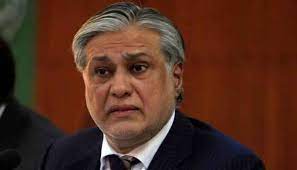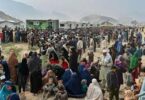Minister for Finance and Revenue Ishaq Dar asserted that Pakistan would not default, even if a stalled loan program with the International Monetary Fund (IMF) was not revived. While commenting on the delay in the conclusion of a staff-level agreement with the IMF for the release of a crucial economic bailout package for the South Asian nation, Dar said that rumors about Pakistan defaulting on its debt obligations should not be spread and the international politics based on injustice with Pakistan should be ended.
Pakistan began formal talks with the Washington-based global lender in February this year to negotiate a plan to rescue the country’s economy by reviving the IMF’s Extended Facility Fund (IFF) and securing the release of a $ 1.2 billion tranche that will be part of the Country’s $ 6 billion bailout package previously concluded in 2019. The IMF was extremely annoyed with Pakistani authorities who blatantly trashed the EFF program twice through their politically motivated economic policies and fiscal governance during 2021 and 2022 by the successive administrations of warring Pakistan Tahreek-e-Insaaf (PTI) and PML-N respectively.
The incumbent PML-N-led coalition government remained successful in rescuing the national economy through tough policies and fiscal management in the early months after assuming power last year. However, insane policies, overconfidence, and reckless verbalism of Mr. Dar brought the healing economy to the brink of collapse. Dar’s unreal self-proclamation and delusional monetary policies cost billions of dollars loss to the government of Pakistan, private businesses, and commercial entities and the wheel of the industry practically came to a halt as the imported raw material and machinery struck at the ports due to the no opening of LCs and fear of bankruptcy. The International Monetary Fund has not yet expressed willingness and the scope of a staff-level agreement between the parties is rare because the Pakistani leaders have lost their credibility at the global level and the IMF wants assurances from friendly nations who advocating on behalf of the 225 million strong fragile economies.
The country has been struck with acute economic challenges, low foreign reserves, bad governance, an energy crisis and climate-induced superfloods, and high inflation. In contrast, an all-time intensified political anarchy created worse situations for the masses. The severe economic issues and price hikes pushed the middle and lower middle classes below the poverty line, while low government spending in the social sectors including health and education sharply declined the life quality of the people.
In the prevailing situation, the analysts are of the view that the IMF’s endorsement of Pakistan’s economic policies and revival of EFF program is crucial for the restoration of global confidence in the country and the revival of economic and industrial activities as the nose-downed economy needs periodic injections of additional resources to achieve sustainability and predictability. Currently, Pakistan is facing an existential threat due to its weak economic outlook and persistent political unrest, but our political leadership failed to access the gravity of the risks and the sensitivity of the situation. The nation has experienced the devastating results of the economic policies of its four-time finance Minister and people have no trust in him anymore. This country is not a practice lab for the so-called economists to test their failed recipes and level huge prices on the public. Unfortunately, the world’s seventh and first Muslim nuclear nation is unable to sustain itself on its feet despite the abundance of human, and material resources because of the incapacity and corruption of its leaders and bureaucracy. Pakistani leaders should be measured in their words and policies as well as in dealing with global institutions, so the public might not feel ashamed over the mismanagement and bad governance of the leaders at the global level.







